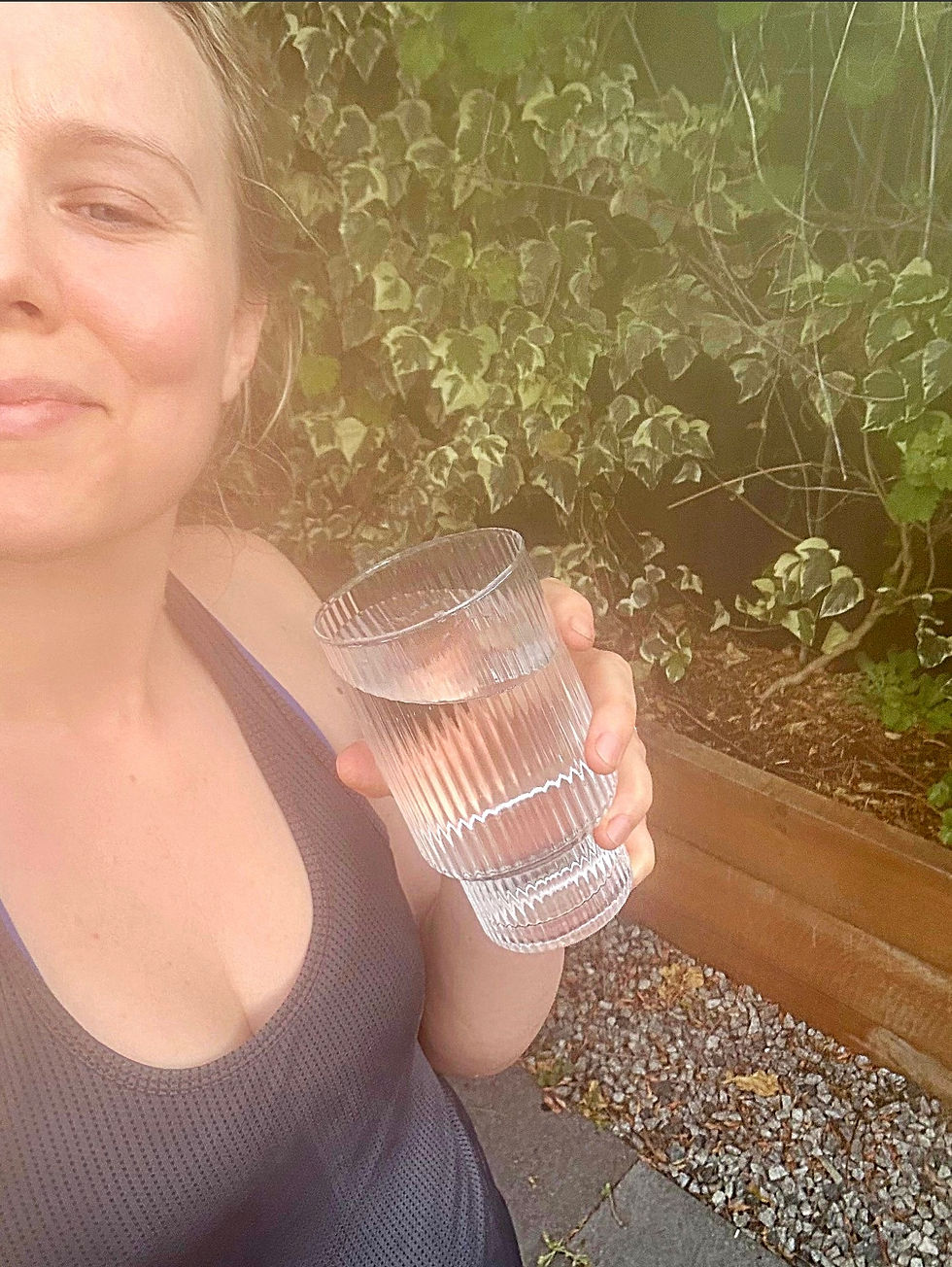Nutrient Spotlight: Vitamin D ☀️
- Kelley Sloan

- Jul 5, 2023
- 3 min read
Vitamin D is getting a lot of attention at the moment in health and wellness communities - our need for it, deficiency concerns, supplement use, you name it, it's being talked about... so here's everything you need to know about vitamin D.

What is Vitamin D?
Vitamin D is a fat soluble vitamin that is essential for absorption of calcium and phosphorous which are vital for bone development
The liver and kidneys convert vitamin d into an active hormone called calcitriol that helps to control the amount of calcium in the blood and assists in the amount of calcium absorbed in the gut.
Symptoms of Vitamin D deficiency
frequent illness or infection
slow wound healing
fatigue and tiredness
depression and anxiety
muscle pain and weakness
low bone density
bone and back pain
hair loss
weight gain
It's important to note that these can also be symptoms related to other things so do not self diagnose but seek correct diagnosis... read on for more details on this ↓
Potential Risk Factors for Vitamin D deficiency
absorption disorders such as Crohn’s and coeliac disease
hyperparathyroidism
kidney and liver disorders
diet low in seafood and dairy
lack of daily sunlight due to occupation (ie night shift workers) or place in the world
being overweight or obese
ageing
skin complexion can be a risk factor
Benefits of Vitamin D
(based on current research)
better bone health and muscle strength
potentially preventative of some cancers
supports healthy hearts and may prevent heart disease through reducing inflammation
supports strong immune function
reduces risk of Type 2 diabetes by helping to regulate the pancreas and insulin and reducing inflammation
promising findings in relation to multiple sclerosis (MS)
benefits cognitive decline - lowers risk of dementia
notable difference in overall lifespan of those deficient in it vs those that are not
This is why we want to keep vitamin D at optimal levels in our bodies.
Foods rich in Vitamin D
Mushrooms
Eggs, particularly the yolk
Cod liver oil
Red meat and liver
Milk, yoghurt and cheese
Fortified products ie plant milks, oats, cereals
Salmon, mackerel, sardines, oysters, trout, canned tuna
Sunlight triggers vitamin D synthesis when it hits our skin so sunlight can trigger foods grown in the sun and it’s a great excuse to get out and eat your lunch in the sunshine!

D2 vs D3 - Choosing a supplement
I definitely prefer my clients to get vitamin D from their food over taking supplements. Think of supplements as the bandaid or boost that we need while deficient, but my job is to figure out if we have key components of this nutrient missing in your diet and we can correct it by including more vitamin D rich foods or if it's an absorption issue and there are other nutrients lacking in your diet that are stopping you from absorbing this one.
There are big differences between vitamin D2 and D3. D2 comes from plant sources of vitamin D while D3 is naturally produced in the human body and found in animal products. D3 is the most bioavailable, really meaning the most easily absorbed by our bodies so if you do need to supplement, I recommend a high quality D3 for best results and quickest return on investment over a D2 supplement unless there is an ethical reason around eating animal products such as veganism.
Vitamin D, Hormones and Pregnancy
Hormones
Vitamin D deficiency may lead to lower oestrogen levels or imbalance which can cause symptoms such as depression, hot flashes, mood swings to name a few. Low levels of vitamin d may also cause parathyroid imbalance.
Pregnancy
Vitamin D is vital for healthy skeletal formation, bone health, tooth enamel formation and general foetal development. Not all prenatal supplements are created equal, or are of good quality, so seek the help of a professional in choosing a high quality one. You will need to take this in the months during pre conception, during pregnancy and breastfeeding.
Feel like you need to check your Vitamin D?
If this info has you thinking you might need to take some vitamin D then STOP 🛑
NEVER self prescribe... always book a blood test with your GP to find out if you're deficient in anything before supplementing.
No deficiency... then no need to supplement.
While rare, there are risks in having too much vitamin D which can cause:
nausea
vomiting
constipation
appetite loss
pain - often in the gut or bones
muscle weakness
confusion
dizziness
headaches
dehydration
extreme thirst
frequent urination... and more
So it is always a smart move to save yourself the hassle of other health issues and money spent on unnecessary supplements by getting your bloods checked first.
Eating a balanced, nourishing, whole foods diet and including the foods listed above and getting 30 - 60 minutes of daily sunshine should keep your vitamin D levels in perfect harmony.
Happy eating,
🩵 Kelley x




Comments